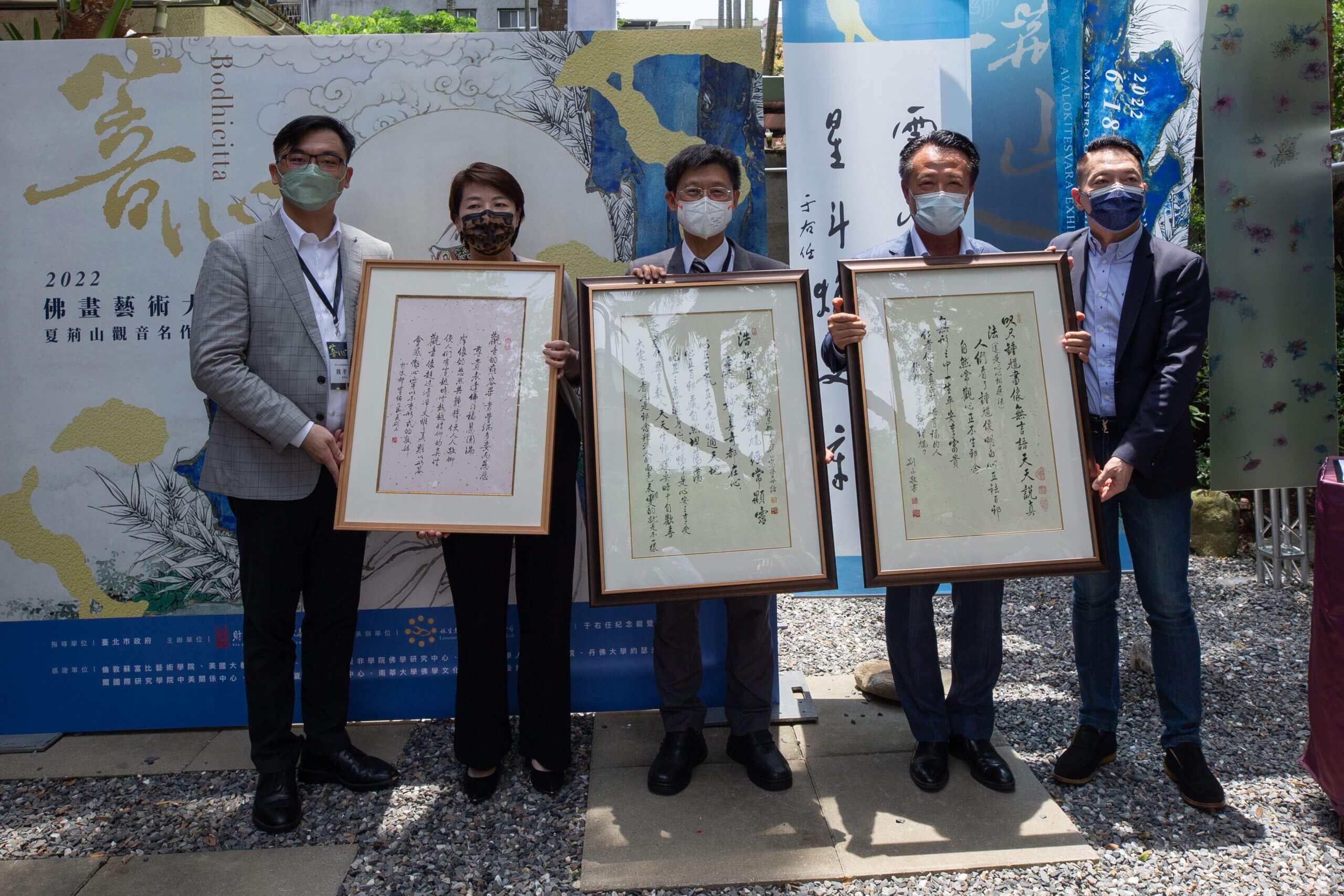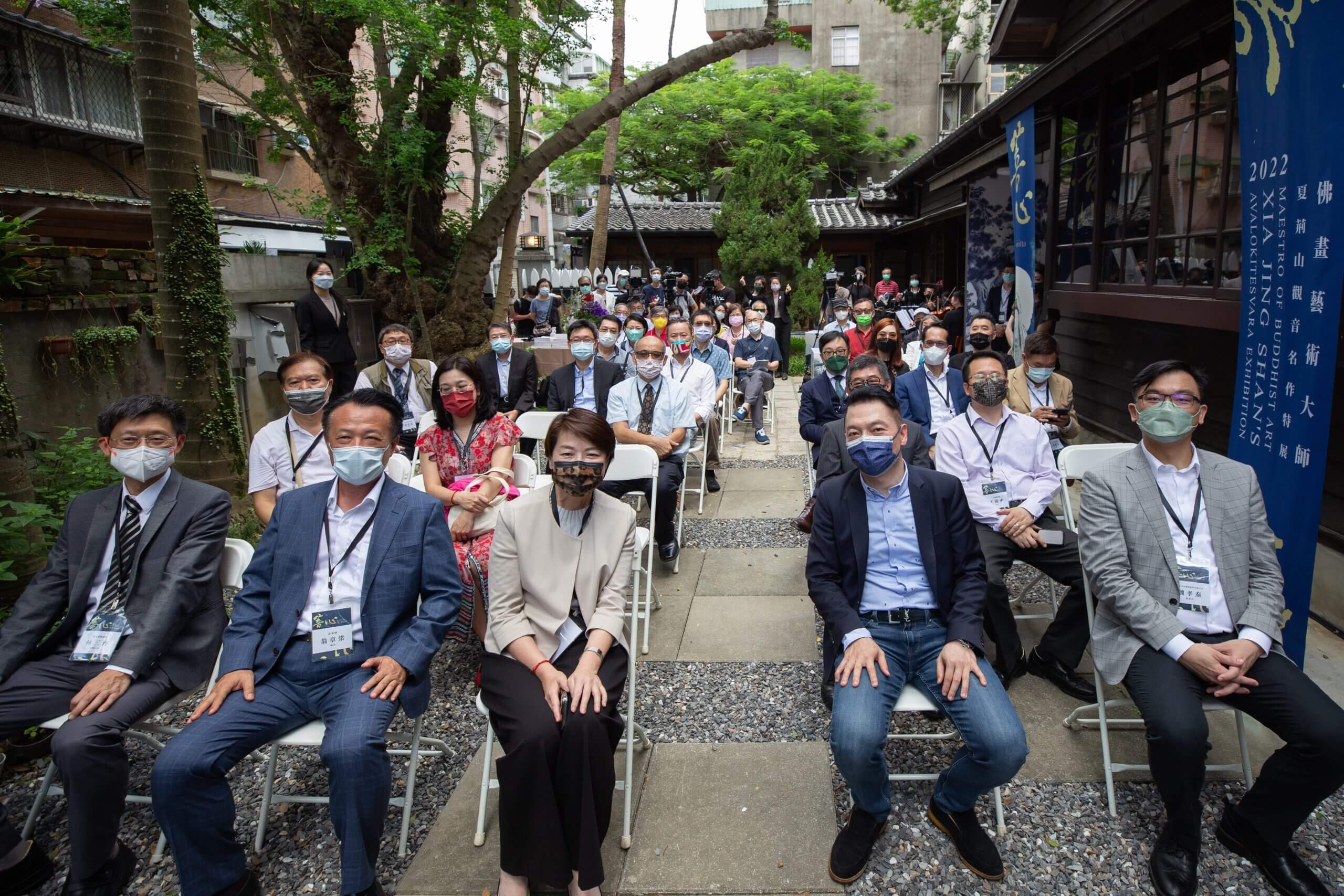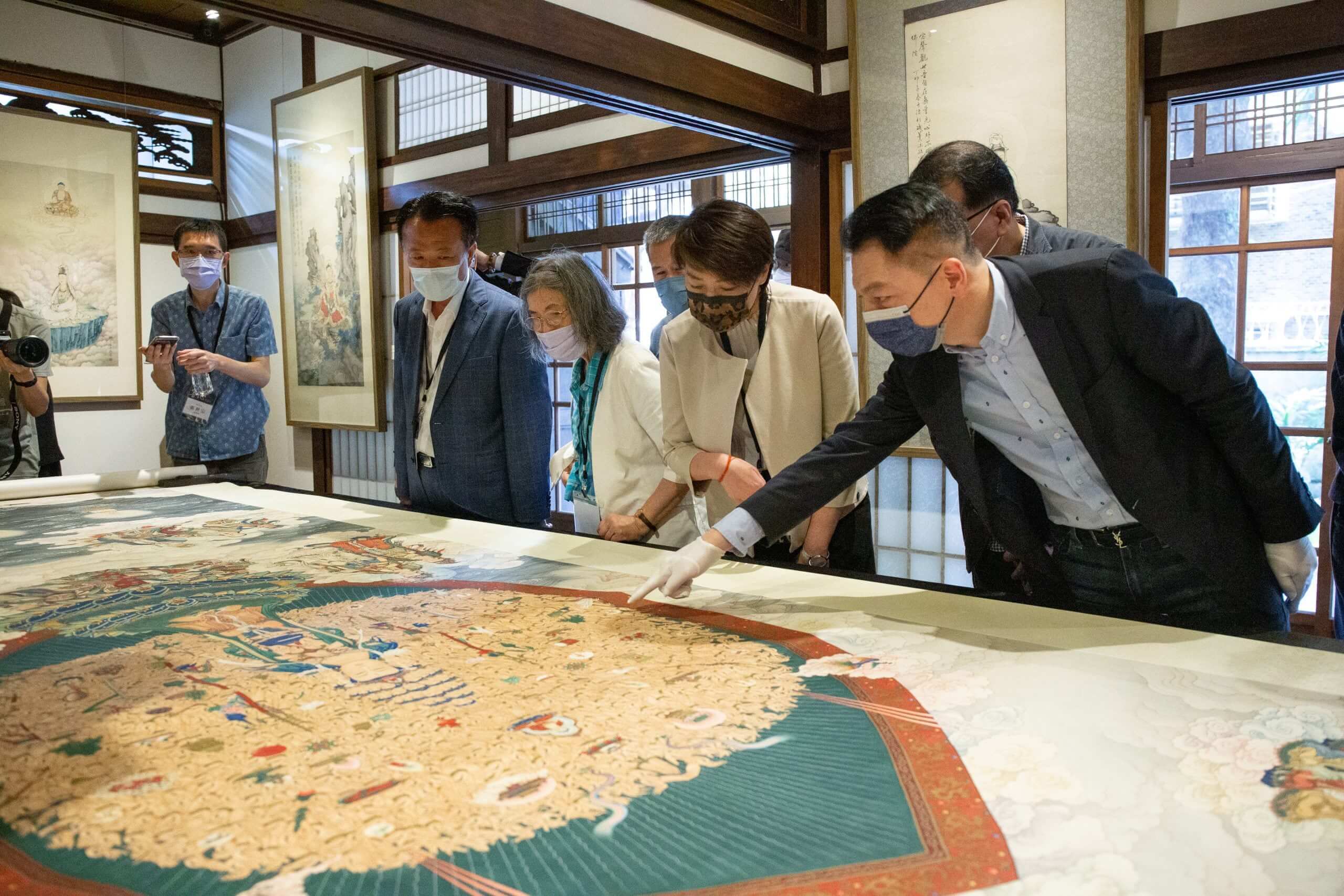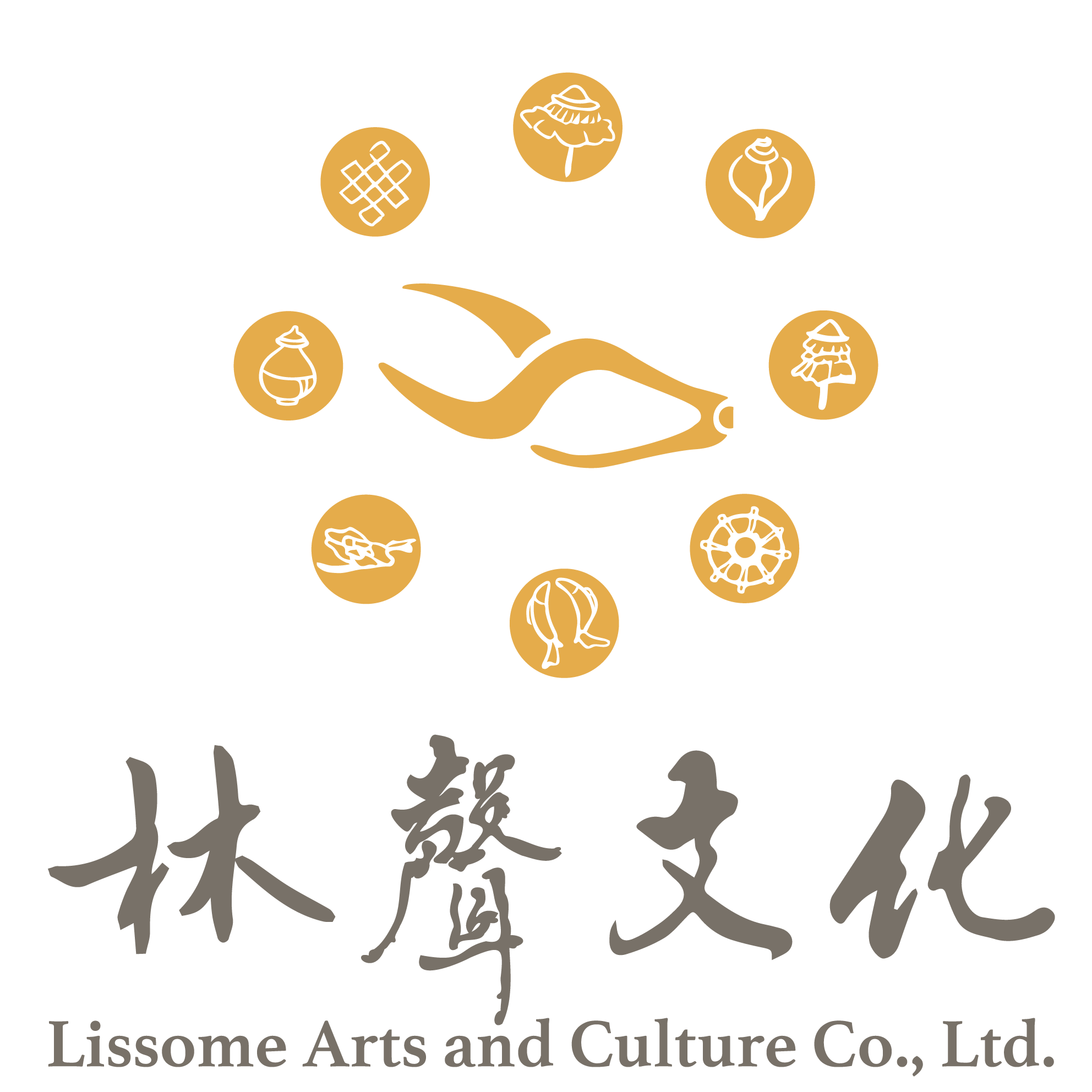“Bodhicitta: Maestro of Buddhist Art: Xia Jing Shan’s Avalokitêśvara Exhibitions” brings world-class art masters to Taipei City

At a time when Taiwan has gradually gotten out of the plateau period of the COVID-19 pandemic, the launching ceremony of "Bodhicitta: Maestro of Buddhist Art: Xia Jing Shan’s Avalokitêśvara Exhibitions" was held at the Yu You-ren Memorial Hall and Qingtian Academy. Taipei Deputy Mayor Huang Shan-Shan, representing the guidance unit, expressed her special thanks to the Xia Jing Shan Arts and Culture Foundation for bringing art masters into Taipei City.
At the ceremony, Dr. Chao, Chung-Chieh, CEO of Xia Jing Shan Arts and Culture Foundation, which served as the organizer, and Charles Wei, Chairman of Lissome Art & Culture Co., Ltd., which served as the case handling unit, presented Xia Jing Shan's calligraphy and painting works to Taipei Deputy Mayor Huang Shan-Shan, Chiayi County Magistrate Weng Chang-Liang and San-Qi Lin, Deputy Chief Executive of Hospital and Social Welfare Organizations Administration Commission, Ministry of Health and Welfare, thanking them for squeezing time to support the art and culture event and their efforts and sacrifices to protect the health and safety of our people.
Chao Chung-Chieh pointed out that Xia Jing Shan's paintings were officially collected by the Beijing Palace Museum in China in 2010, and were hailed by Zheng Xin-Miao, then director of the Beijing Palace Museum, as China's "future cultural relics", filling the gap in Chinese Buddhist art and culture. To trace the precious history of Xia Jing Shan and Yu You-ren's encounter and acquaintance, the exhibition was held at Qingtian Academy, where Sinologists Nan Huai-Chin, Xia Jing Shan and Yu You-Ren gathered. The exhibition name "Bodhicitta" was a combination of Xia Jing Shan's and Yu You-Ren's bynames each expressing a quality or an attribute of theirs and a reminder to the beautiful karma of their devotion to "Bodhicitta" at that time.
Huang Shan-Shan pointed out that Xia Jing Shan’s paintings could settle your souls, calm your mind, and dissipate your trouble, and she appreciated very much that this exhibition allowed Taipei citizens to appreciate the world-class treasure paintings at such a close distance.
Wei Hsiao-Chin said that the Yu You-Ren Memorial Hall and Qingtian Academy was a gathering place for literati and scholars in those days, which can reflect the connotation of Maestro Xia Jing Shan's paintings. In the future, the Lissome Arts and Culture Co., Ltd. will continue to promote the Buddhist painting through technology and art.
Weng Chang-Liang mentioned in his speech that the huge 10-meter-long painting of "Avalokitesvara Bodhisattva with Thousand Hands and Thousand Eyes" by Xia Jing Shan made people find the calmest place in mind, which was even more important under the oppression of the COVID-19 pandemic. Weng Chang-liang said that Xia Jing Shan (1923-2019) studied Buddhism under Master NanTing and Sinologist Nan Huai-Chin and he was called the “First Buddhist Art Maestro Across Centuries" because he was highly influenced by traditional oriental calligraphy and painting since childhood. His works have been collected by world-renowned institutions, such as Sotheby’s Institute of Art in London, the Asian Art Museum of San Francisco, etc.
In this exhibition, 21 classic masterpieces from the Xia Jing Shan’s Avalokitêśvara series were exhibited under the futuristic theme of "White-robed Avalokitêśvara" from the Beijing Palace Museum in China, showcasing the images and appearances of Avalokitêśvara Buddha statues that not only inherit the tradition but also open their own faces and eyes. All of them were painted in Xia Jing Shan’s unique style and gave people a sense of peace and tranquility.
Restored in this exhibition is Maestro Xia Jing Shan’s calligraphy room, where the calligraphy masterpieces of both Xia Jing Shan and Yu You-ren are displayed. Here, you will also see thread-bound books, manuscripts or old photos, all of which record Xia Jing Shan's dedication to practicing Buddhism and studying the art of Buddha statues. From their correspondence in the 1960s, you will feel the profound humanistic heritage of Qingtian Street. The Buddhist paintings drawn by Xia Jing Shan not only inherit the essence of Chinese culture and Confucianism, Buddhism and Taoism, but also link them together, showcasing the historical trajectories of many literati and writers.
Lasting from June 18 to July 31, the exhibition is held at the Yu You-ren Memorial Hall and Qingtian Academy. No admission fee is required. Lighting time for the outdoor art installation is from 17:30 to 21:00. Celebrity lectures and art tours (group reservation) will be given during the exhibition. Everyone is welcome.


